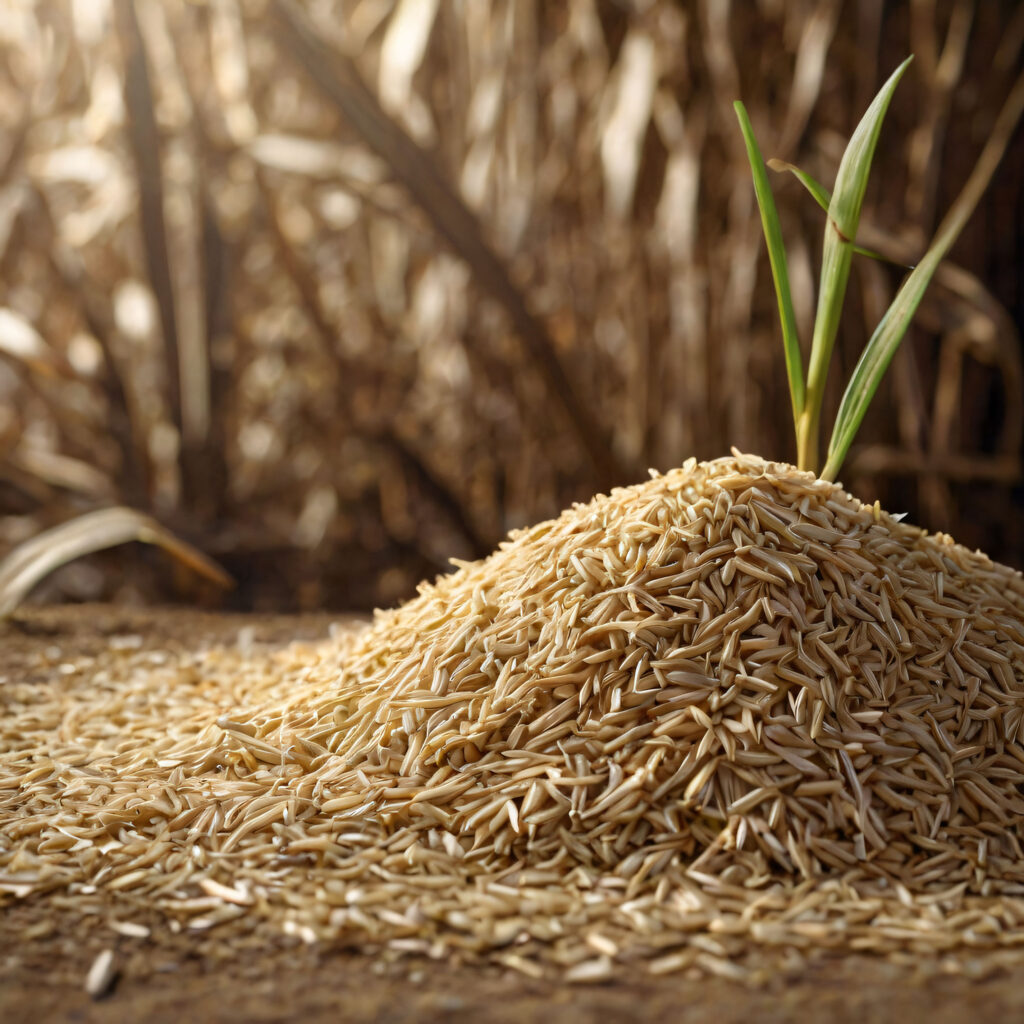Plastic is one of the greatest environmental challenges our planet faces. From oceans to landfills, its presence is ubiquitous and its impact devastating. However, innovations like Oryzite, a revolutionary material derived from rice husk, are opening new doors toward a more sustainable future. In this article, we explore how Oryzite can be a viable solution to reduce global plastic use and help protect our environment.
What is Oryzite?
Oryzite is an innovative material developed from rice husk, a by-product of rice cultivation traditionally considered waste. Through an advanced process that includes the use of enzymes, pressure, and temperature, this husk is transformed into a material with unique thermoplastic properties. This means that Oryzite can be incorporated into conventional, recycled, or biodegradable plastics, significantly reducing plastic use and associated emissions.
Environmental and economic impact:
Plastic reduction
Oryzite has the potential to reduce up to half of the world’s plastic use, making a significant contribution to environmental protection. By partially substituting conventional plastic with Oryzite, the amount of plastic produced and discarded is reduced, decreasing pollution and preserving natural resources.
Supporting the circular economy
The use of Oryzite promotes the circular economy by utilizing an agricultural by-product that would otherwise be waste. This approach not only reduces waste but also provides a new source of income for rice farmers. Transforming rice husk into a valuable resource fosters more responsible production and consumption, aligned with the UN Sustainable Development Goals (SDGs).
Industrial applications
Oryzite is positively impacting various industries, especially the automotive sector, where it has been validated by the International Material Data System (IMDS). It is also used in products like reusable cups and in the cosmetics industry. These applications allow companies to comply with the Agenda 2030 standards and the SDGs, establishing themselves as leaders in sustainability and promoting innovation across multiple sectors.
The need for favorable legislation
To maximize Oryzite’s impact, it is essential that the European Union and other legislative bodies promote and, in some cases, mandate the use of sustainable materials like Oryzite. This will not only drive innovation and research into ecological alternatives but also strengthen the environmental policies necessary to address future climate challenges.
Future vision
The future of Oryzite includes the global expansion of its use and licensing for various industrial applications, not only in the automotive sector but also in other sectors that depend on plastic. Continued collaboration with legislators, researchers, and other industries is essential to develop new applications, promote public policies that encourage the use of Oryzite, and increase public awareness about the need to reduce plastic use and carbon footprint.
Oryzite represents an innovative and sustainable solution to one of the greatest environmental problems of our time: excessive plastic use. By transforming an agricultural by-product into a valuable material, Oryzite not only reduces the amount of plastic in the world but also supports the circular economy and fosters sustainability across multiple industries. With the right policy and legislative support, Oryzite has the potential to lead the way to a cleaner, more sustainable future.
Join us in the fight against plastic and for a greener planet!



